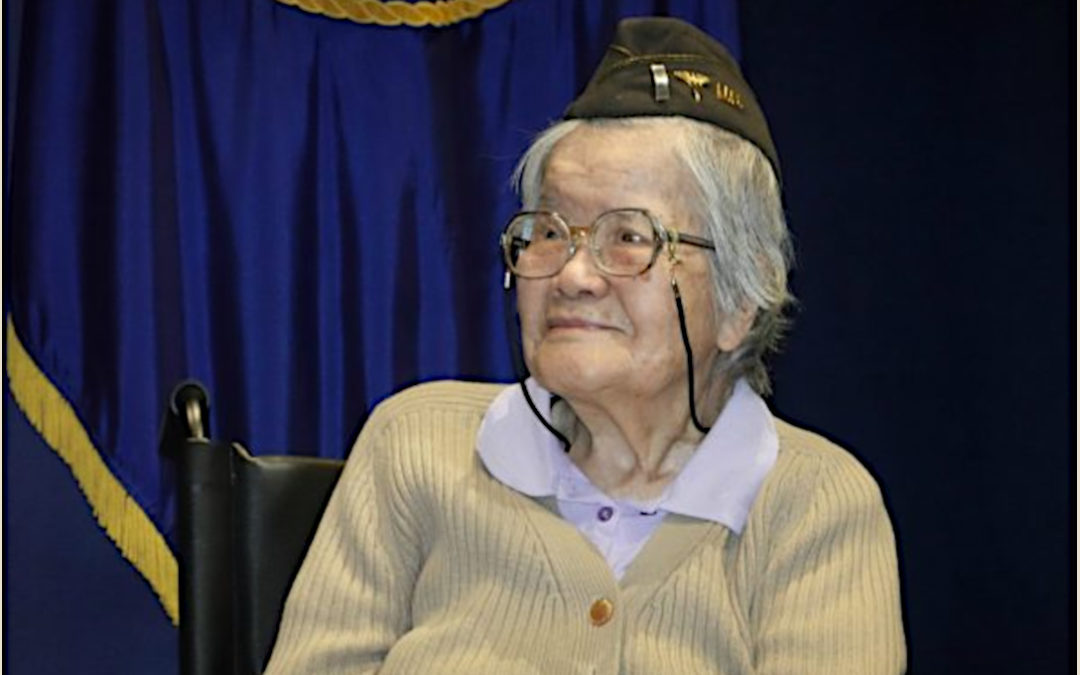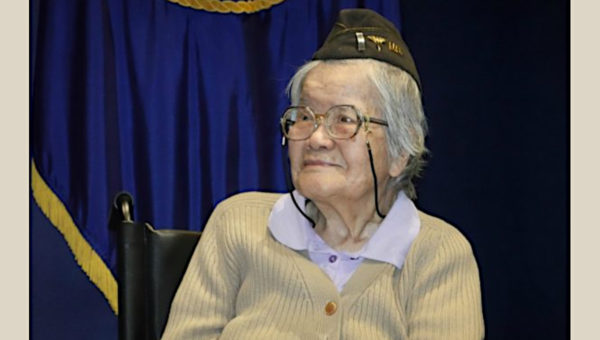Part Two: Nursing in War-Torn China
(To read Part One, click here)
At the beginning of the war, rural China had very few hospitals, medical supplies, equipment or trained personnel. Malnutrition, lack of basic sanitation, overwork and disease were commonplace, making the provision of health care very challenging. Rural people usually relied on traditional Chinese medicine and practitioners. The Chinese Army Medical Corps was unprepared to care for hundreds of thousands of ill and injured soldiers, much less help a large civilian population. Some Western-trained Chinese physicians, along with European and North American doctors practicing in China, had founded the CRCMRC early in the twentieth century. The organization was invaluable in free China during World War II by supplying medical personnel, training and equipment (Mamlok, 2018). Seetoo was familiar with their work and had spearheaded financial collections for the CRCMRC while she was a student nurse. The lack of adequate supplies is illustrated by this recollection of Seetoo’s time with the CRCMRC:
“When I was at the Chinese Red Cross in Guiyang I saw how they were very economical in using their materials, like the dressings … the very soiled dressings would be thrown out, but there was a great big vat or a pond they had that was full of bleach and whatever, that they throw some of the … not-so-soiled [dressings] … to kind of bleach them clean, and after they were clean they would autoclave them and reuse those dressings again …” (Trojanowski, 2005).
Her work with the CRCMRC did not last long. She explained:
“My schoolmate, whose sister had been at Women’s College [of the University of North Carolina] … had gone up to Yenan back in 1938, and Yenan was where the Chinese Communists had holed out during Chiang Kai-shek’s time … she had finished high school and she wanted to join them, because she thought … they were doing the job of fighting the Japanese better than the Nationalists … because I knew the family, before I left Hong Kong to come inland I had gone to see the mother, and the mother said, “When you have a chance once you get inland, will you please write my daughter to tell her that we’re safe.” So that was all I did. But then the Chinese Nationalists have a way of censoring all the mail, opening all the mail that goes up there, or at least they take note of it, and the next thing I know they got hold of the nursing superintendent … my supervisor at the Chinese Red Cross, and asked about me … But, you know, the Chinese Nationalists were very—even during my high school years I hear all kinds of stories about people disappearing. So, when there was an opportunity to volunteer to go to India, I volunteered … But after I went over to India and then came back to Kunming, they lost my trail. That was the end of it.” (Trojanowski, 2005).
Seetoo spent the months from late December 1942 until the monsoons began in June 1943 at Camp Ramgarh, India, training Chinese Army medics in first aid and rudimentary medical procedures. She said this about her time in India, “For several months we lived kind of the Boy Scout, Girl Scout type of a camping life. I enjoyed it as long as I didn’t have to cook.” (Trojanowski, 2005).
US citizenship: lost and regained
The CRCMRC trainers shared space at Camp Ramgarh with the US Army 95th Station Hospital. In the summer of 1943, the two groups left India together for Kunming. After returning to Kunming the CRCMRC training unit was disbanded, and Seetoo applied to work at the 95th Station Hospital as a member of the US Army Nurse Corps. She was turned down because she had “performed military service for another country” and thus, unbeknownst to her, lost her US citizenship. She later recalled:
“They [US Army] considered that because of my being in the medical service training unit, it was part of the Chinese army … to regain my U.S. citizenship I had to take the oath of allegiance again, and oath of renunciation and allegiance, which I did.” (Trojanowski, 2005)
Now she was a US citizen both by birth and by naturalization. A year passed between the time it took for her to apply to the Army Nurse Corps, learn she was rejected due to her lost citizenship, regain her US citizenship, and apply again. She was accepted and on June 17, 1944, she became the first Chinese American nurse to serve in the US Army Nurse Corps. She entered at the rank of First Lieutenant. Although she did not serve near the ground war, her hospital was attacked repeatedly by the Japanese Air Force. “The planes came over to drop their bombs. The Japanese would penetrate [the defensive perimeter of the hospital] and we would hear the sirens and run for cover” (Lee, 2019).
The 95th Station Hospital’s official Army history notes the hospital was:
” … Reached by plane over the Himalayan mountain range-one of the most picturesque, albeit dangerous, flights in the world … having weathered monsoons, air raids, and indoctrination in the treatment and prevention of various tropical diseases …. It functioned as a station hospital to care for battle casualties from the various fronts in China … Officers, nurses and enlisted men were required to learn and carry out duties in addition to those for which they were trained. Long hours of work, doubling-up on duties and diligent application to new tasks were the rule rather than the exception.” (History of the 95th, 1951)
She was the only nurse with the unit fluent in both English and Chinese and was highly valued for both her nursing and her language skills. Seetoo spent the last months of her military duty, after the war, with the 172nd General Hospital in Shanghai and was discharged to the United States in the spring of 1946.
Years later, Seetoo reflected on her time in China:
“I had spent a total of fifteen years in China. I had had a huge opportunity to dig deeper into my roots and learn more about my Chinese heritage, its history, geography, and traditions. The war years gave me the opportunity to sample places I knew in earlier times only through a geography book, and met people from diverse backgrounds and walks of life. I was able to personally taste Guangxi’s famous pomelos, admire Guilin’s landscapes, read the couplets framing the temple by Kunming Lake, felt the dusty loess blow against my face in northwest China, heard the drum roll from towers over city gates, and see the flickering ghost fires dance outside city walls. It was truly, to quote Dickens, ‘the worst of times and the best of times,’ and on touching U.S. soil I felt I was really straddling two cultures.” (Trojanowski, 2005)
After visiting her family in Stockton, Seetoo visited friends on the east coast. In Washington, DC she met Joe Yuen, who worked on electrical systems for satellites at the Naval Research Laboratory. They had a whirlwind courtship and married after six weeks. When Seetoo met Yuen, she was already admitted into the new Bachelor of Science in Nursing degree program at Women’s College of North Carolina (now the University of North Carolina at Greensboro). Using veteran’s benefits to pay for college, from 1946-1948, she took classes during the week in Greensboro and commuted to Washington to see her new husband on weekends and during school breaks (.
After graduation she moved permanently to the Washington, DC area and spent the next 15 years focused on caring for her husband and their four children. During this time, Seetoo became a freelance translator of English/Chinese medical literature for a company in Washington. Perhaps her best-known translation is the Chinese paramedic text, “A Barefoot Doctor’s Manual.” In the 1970s she worked as a technical publication writer and editor at the Naval Medical Center and the National Institutes of Health (Moy, 2014).
Receiving the Congressional Gold Medal
On December 20, 2018, President Trump signed the Chinese American World War II Veteran Congressional Gold Medal Act, which had passed Congress unanimously. Soon after, on January 29, 2019, Seetoo was selected to receive the Congressional Gold Medal, the highest civilian honor awarded by Congress, on behalf of all Chinese American World War II veterans. Several high-ranking elected officials and officers of all the military branches expressed their gratitude to these veterans (U.S. Department, 2019). During the ceremony, Seetoo said:
“We have waited a long time for this moment. I am deeply honored to receive this Congressional Gold Medal on behalf of my sisters and brothers. I hope our perseverance, commitment, and hard work will further inspire our young people to serve this wonderful country.” (Eng, 2020)
Today, at 102, Seetoo is living outside Washington DC enjoying her friends and family.




